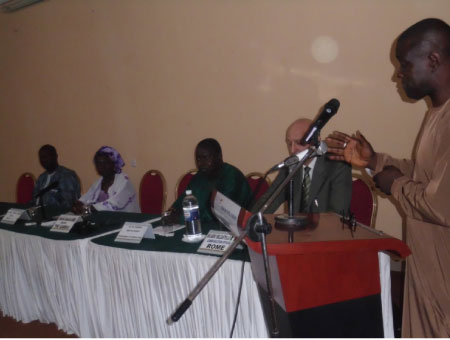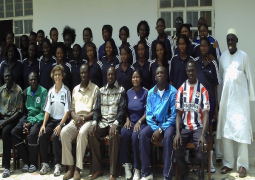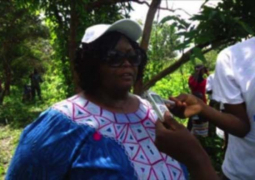
Journalists and communication experts recently concluded a four-day FAO funded media training on ‘communication for development’.
The training has inspired the participants to increase their advocacy in food security amid the global food crisis, which also affects the country.
At the end of the training, participants were awarded certificates of participation after successfully completing the course on ‘communication for development’ in food security.
Journalists and communication officers at the training also agreed to form a new association dubbed Alliance of Communicators for Food Security (ACFFS) in The Gambia, with the aim of advocating for food security issues as well as communication for development; and raising awareness on food security among others.
The four-day intensive training is aimed at enhancing communication abilities and skills of media practitioners, and other communication experts.
It also aims at creating an interactive forum in which practical lessons learned and communication issues emerging within FSCA project can be shared.
The FAO- FSCA is an Italian-funded project operating in two regions in The Gambia to increase food security using modern techniques in production, processing and marketing.
Dr Sait Drammeh, director general of Agriculture, told the participants at the certification ceremony: “We in the Ministry of Agriculture appreciate the role of communication in agricultural development. This is evident in the establishment of an Agricultural Communication Unit since 1972.
“Although this unit has gone through some transformation, we continue to be committed to strengthening its capacity.
“People’s participation in development has become the central issue of our time and communication is central to this task. Agricultural programmes can only realise their full potential if knowledge and technology are shared effectively, and if populations are motivated and committed to achieving success.”
Unless people themselves are the driving force of their own development, he explained, no amount of investment or provision of technology and inputs will bring about any lasting improvements in their living standards.
“Only with communication will project beneficiaries become the principal actors to make development programmes successful. This is why Communication for Development has taken the centre stage of our development. It seeks to empower rural people to find common grounds for action, build a sense of identity and participation in order to implement their decisions. However, it is vital to stimulate their awareness, participation and capabilities.”
According to Mr Drammeh, communication skills and technology are central to this task. Communication media and techniques can be powerful tools to advise people about new ideas and methods, to encourage adoption of those ideas and methods, and to improve lives overall.
“The Ministry has followed with keen interest the implementation of the FSCA project. We have seen impressive results in production, value addition and marketing. The impact of the communication component of the project is just starting to be seen. It is our hope that the concepts and practices used by this project can be assessed in-depth for the purpose of integrating them into our overall development framework.”
He urged participants to demonstrate the talents and skills acquired during the training, adding: “I have learnt that the training has initiated the formation of an ‘Association of Food Security Journalists’.
The lead trainer who is also the Communication for Development officer at the FOA Rome Office - the office of Exchange, Knowledge, and Research (OEKR), Riccardo Del Castello, said the training was intensive while describing the participation as ‘excellent’.
He said that during the training various communications for development approaches that can be applied to a given context, which include realising their potential or weakness; looking at various tools and technologies and discussing how they can foster effective communication among different stakeholders as a means for innovation in agriculture and rural development among others, were discussed.
“I’m really impressed with the level of participation, exchange of ideas and experience. This training should move beyond the four corners of the wall.” Ricardo, who led a team from Italy, said before expressing his willingness to provide additional support to the participants and formation of the alliance proposed during the training.
Musa Mbenga, FAO sub-Regional Coordinator and FOA Country Director Babagana Ahmadu graced the closing ceremony along with senior officials of agriculture and FOA Banjul Office.
Alex Dacosta, on behalf of the participants, thanked the organizers for the opportunity.




